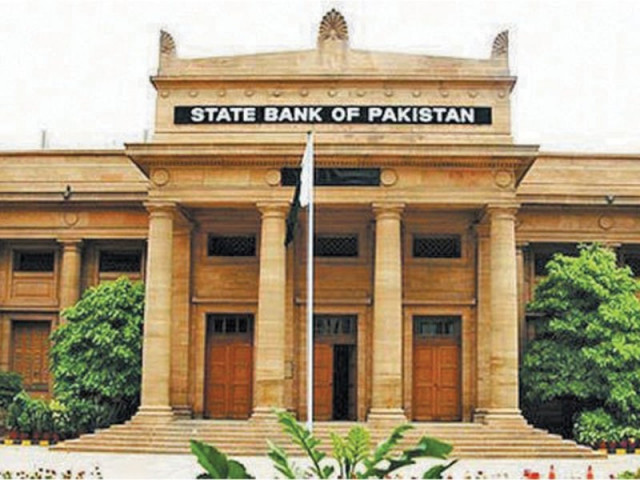SBP urged to slash interest rate
Economists, traders demand 300 basis point reduction to reignite investment

Business leaders and traders have called for a reduction in interest rates to single digits to stimulate economic growth and end the stagnation currently gripping the country.
Majyd Aziz, an industrialist and former president of the Karachi Chamber of Commerce and Industry (KCCI), stated, "Monetary policy is often awaited with concern, especially over the last year when the State Bank of Pakistan (SBP) took unpopular yet pragmatic decisions to raise interest rates. However, the last three months have provided much-needed relief with rate reductions. Positive economic indicators, such as controlled inflation and reduced demand for bank financing by the private sector, enabled the SBP to review its monetary policy and help boost the economy."
He noted that this has allowed the government to swap high-interest loans for lower-interest ones.
Aziz added that the upcoming monetary policy could be a significant boost for the private sector, with optimism in the air. A substantial rate cut would send a strong signal to the Pakistan Stock Exchange (PSX), trade bodies, and even foreign investors that better times are ahead. Many industries may begin investing in machinery and equipment, constructing new plants, and increasing raw material inventories. This usually happens when financing costs decrease, as high interest rates discourage investment, making projects less viable.
He also urged the banking sector to shift its focus to the private sector rather than relying heavily on government lending. "Economic development is the domain of the private sector, and progress is generally assured when fundamentals such as pro-active government policies, affordable financing, and a conducive investment environment are in place. One practical way to achieve this is by lowering interest rates as much as possible."
Muhammad Saleem Memon, President of the Hyderabad Chamber of Small Traders and Small Industry (HCSTSI), urged the SBP to continue aligning its monetary policies with global economic trends and further reduce interest rates. "This will create a more conducive environment for economic recovery, boost industrial output, and promote job creation, allowing businesses to play a more active role in revitalising Pakistan's economy," he said.
Memon commended the central bank for its recent rate cuts, which provided much-needed relief to the business community. The prolonged period of high interest rates, which remained at 22% for over a year, significantly hampered business growth, particularly for small traders and manufacturers. While the recent reduction is a positive step, he stressed the need for further cuts to stimulate economic growth, especially when compared to regional competitors like India and Bangladesh, where policy rates are 6.5% and 6%, respectively.
Pakistan's high borrowing costs have stifled investment, curtailed expansion plans, and forced businesses to focus on survival rather than growth. The Small and Medium-sized Enterprises (SMEs) sector, which contributes less than 30% to the country's GDP, has been particularly hard-hit, facing liquidity challenges and limited post-pandemic recovery opportunities.
KCCI President Muhammad Jawed Bilwani and Policy Research and Advisory Council (PRAC) Chairman Mohammad Younus Dagha recently advised the SBP to reduce the policy rate by at least 300 basis points in the next Monetary Policy Committee (MPC) meeting, following a notable drop in inflation to 6.9% in September 2024.
While they appreciated the SBP for lowering the policy rate from 22% to 17.5% over the last three meetings, they pointed out that September's inflation decrease marked the second consecutive month of single-digit inflation after more than two years of high inflationary pressure. They urged the SBP to now implement a more aggressive rate cut.
They argued that with inflation under control and commodity prices stabilising, a significant reduction of at least 300 basis points is essential to alleviate pressure on businesses and stimulate economic activity. Lower interest rates would reinvigorate growth in large-scale manufacturing, which has seen consistent declines in recent months.
Bilwani highlighted that Pakistan's Large-Scale Manufacturing Index (LSMI) dropped by 19.2% from January to July 2024, underscoring the challenges faced by the private sector due to high interest rates, reduced access to credit, and excessive collateral requirements.








1733130350-0/Untitled-design-(76)1733130350-0-208x130.webp)











COMMENTS (3)
Comments are moderated and generally will be posted if they are on-topic and not abusive.
For more information, please see our Comments FAQ